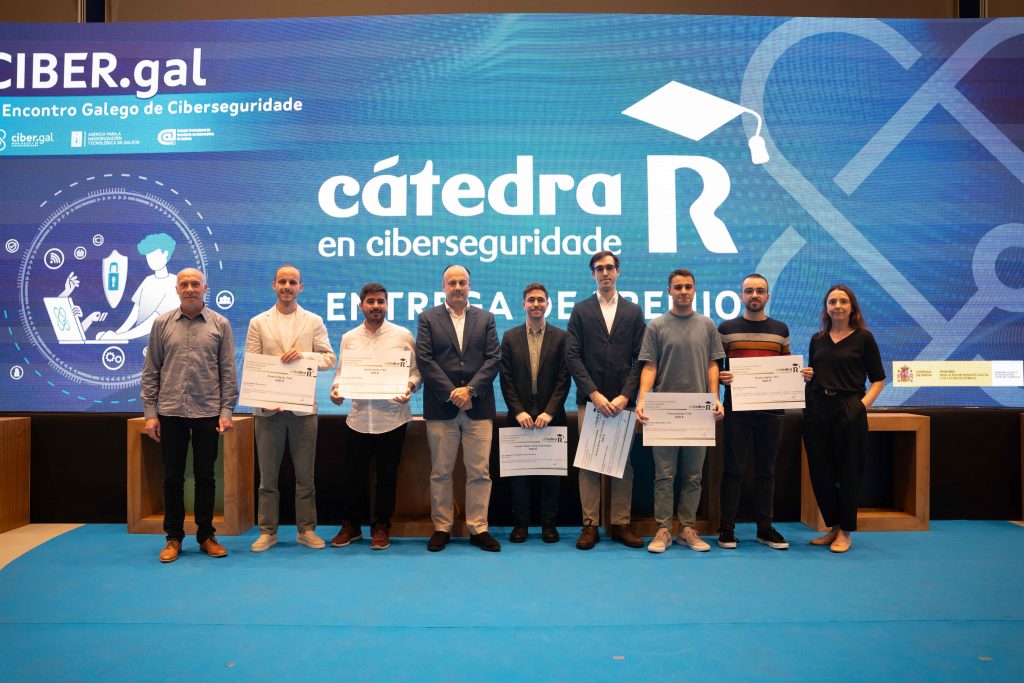
Researchers from CITIC recognized with two awards at the IV CIBER.gal Meeting
Rubén Pérez Jove and Iván Cillero Seijas, researchers from the CITIC at the Universidade da Coruña (UDC), were awarded the prizes for Best Master’s Thesis (TFM) and Best Bachelor’s Thesis (TFG), respectively, by the R Chair in Cybersecurity UVigo-UDC at the IV Galician Cybersecurity Meeting CIBER.gal, held in Santiago de Compostela from November 6 to 8. The event was organized by the Galician Cybersecurity Node, Amtega, and CPEIG..
Application of Deep Learning to Network Security
Rubén Pérez Jove was awarded for his TFM titled “Application of Advanced Deep Learning Architectures in Network Security: The Operating System Fingerprinting Case Study”, supervised by José Vázquez Naya. This work focuses on applying Deep Learning architectures, such as Transformers (the foundation for models like GPT-4 and Llama 3.1), to the field of cybersecurity.
Specifically, the study addresses operating system “fingerprinting,” a technique used to identify the family or version of an operating system by analyzing network traffic. By comparing different classic Machine Learning models with variants of the Transformer, the study demonstrated the superior performance of the latter. This work lies at the intersection of two key research areas at CITIC: cybersecurity and artificial intelligence.
Quantum Network Simulation in the NS-3 Simulator
On the other hand, Iván Cillero Seijas was recognized for his TFG titled “Implementation of a Quantum Network Simulation Module for NS-3”, developed under the supervision of Francisco Javier Nóvoa Manuel and David Soler García. This work improves the QKDNetSim module, enabling more accurate simulations of quantum communication networks. Notably, it optimizes key material management, facilitating more realistic simulations and opening new possibilities for research in this innovative field.
Additionally, during the meeting, Iván Cillero presented his work titled “Implementation of a Secure and Private Messaging System Using Quantum Keys” in the Technical Spaces section. This project, developed within the framework of the Complementary Plan for Quantum Communications of the Recovery, Transformation, and Resilience Plan, aims to design a messaging application with high standards of security and privacy.
The system uses an Entropy-As-A-Service to produce truly random keys using quantum random number generators. It also integrates advanced technologies like zk-SNARKs to authenticate users without compromising their privacy. This approach ensures end-to-end encryption and maintains the confidentiality of users’ identities.





